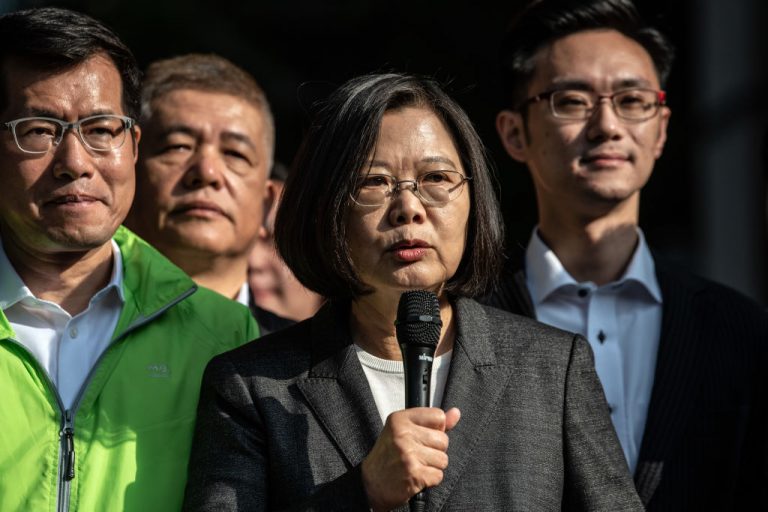On Wednesday, Dec. 29, 2021, Beijing warned the government of Taiwan that it will take “drastic measures” if the latter attempts to fight for formal independence. In response, on Friday, Jan. 1, Taiwanese President Tsai Ing-wen sent a warning back to the communist government, stating that “military conflict is not the answer.”
As the new year arrives, so too have increasing tensions between the two Asian governments, beginning a new period of uncertainty and awareness on the political stage.
Taiwan’s ‘provocations’
Reuters reported that Communist China threatened the democratically-governed Republic of China (ROC) with “drastic measures” in an apparent attempt to assert influence over the island.
According to Ma Xiaoguang, spokesman of the Taiwan Affairs Office, China has always intended for a “peaceful reunification” with the island of Taiwan. However, should Taiwan’s “separatist forces” attempt to fight for formal independence, Beijing will strike back.
Ma has also claimed that the crisis in the Taiwan Strait would become more complicated in the months to come, as the aforementioned “separatist forces” and “external intervention” from other nations continue to influence the area.
Success
You are now signed up for our newsletter
Success
Check your email to complete sign up
“[In 2022], the Taiwan Strait situation will become more complex and severe,” he said.
On Wednesday, Taiwan’s Mainland Affairs Council called for Beijing to “seriously reflect on its work towards Taiwan and make correct judgment on the situation.” The Council also claimed that it continues to respect the policy of “not provoking” to ensure peace in the Taiwan Strait.
The Chinese Communist Party (CCP) has claimed that it rules Taiwan as its own territory and has enforced its military might and political pressure to threaten the island. In recent years, the communist government made several moves in the Taiwan Strait, putting it in hot water with other nations supporting the ROC.
Throughout 2021, the communist-ruled People’s Liberation Army (PLA) deployed numerous squadrons of military jets to Taiwan’s air defense identification zone (ADIZ), barely reaching the established borders between the mainland and the island.
Beijing also sent its fleets deep into the South China Sea, patrolling claimed territories across islands in the Pacific.
President Xi Jinping said in his New Year speech that the reunification of “the motherland” is mutually desired by people of both the mainland and the island.
“I sincerely hope that all the sons and daughters of the Chinese nation will join forces to create a brighter future of our nation,” he said.
New Year’s warning
In response to Beijing’s threats, President Tsai Ing-Wen opened the new year with a message for the CCP, warning the communist government to not act aggressively in its attempts for “reunification.”
“We must remind the Beijing authorities to not misjudge the situation and to prevent the internal expansion of ‘military adventurism’,” she said in her New Year’s speech on Sunday.
Tsai also pressed that both Taipei and Beijing must work together to ensure peace between the people on both sides of the Strait.
“The military is definitely not an option for solving cross-strait disagreements.” she said. “Military conflicts would impact economic stability.”
In the wake of concerns for human rights and after meddling in Hong Kong’s legislative election, as well as the arrests of staff of the pro-democracy media outlet Stand News, Taiwan asserted that it will continue to watch over the crisis.
“We will hold fast to our sovereignty, uphold the values of freedom and democracy, defend territorial sovereignty and national security, and maintain peace and stability in the Indo-Pacific region,” Tsai said.
Despite the ROC’s defeat in the Chinese Civil War and resulting retreat to the island of Taiwan in 1949, the government has persisted over the decades, challenging the CCP’s hold.
As U.S.-China tensions rise, Taiwan has been placed in a more prominent place in global affairs, as more democracies announce their support for the ROC.
Despite not being recognized as a formal government on the global stage, Taipei has been given unofficial support by these nations, culminating in several military tensions within the South China Sea.
Even nations like Poland, the Czech Republic, Lithuania and Estonia – countries that were once under the umbrella of the communist Soviet Union – pledged their informal support for Taiwan.
The U.S. and Japan are also in talks concerning the protection of the island in case an armed invasion is launched by Beijing, proposing to establish a joint base of operations along Japan’s Nansei island chain.
Despite its stance against the CCP, Taiwan is still indecisive whether to boycott the upcoming 2022 Beijing Winter Olympics.














